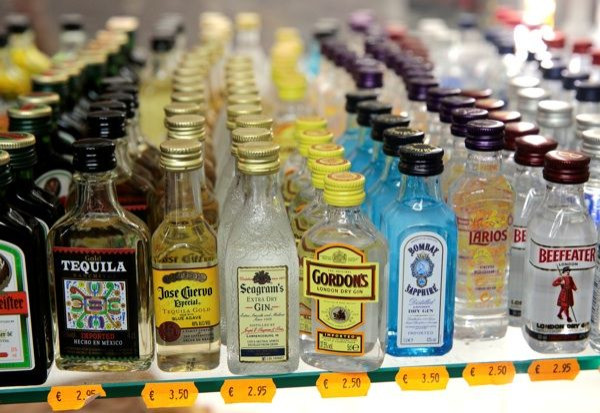Alcohol-Obesity Link: Does Drinking Cause The Munchies? Alcohol Can Lead To Binge-Eating, Scientists Find

Drinking an aperitif to build an appetite is at least 1,500 years old and it is well-known that people usually tend to eat more in a meal if they consumed alcohol before eating, but why we do so is not well understood, especially since alcohol itself is heavy on the calories. A study published Tuesday sheds new light on the matter: the phenomenon could be tied to neurons in the brain that fire under the influence of alcohol.
Researchers from the Francis Crick Institute Mill Hill Laboratory in London injected alcohol in the stomachs of mice to get them drunk. The amount of alcohol used was equivalent to about nine pints (more than 5 liters) of 4 percent lager beer, in human terms. The “alcoholic weekend” experiment lasted three days, and the rodents were injected with saline water for three days before and after the experiment.
The researchers, led by Craig Blomeley and Sarah Cains, found that mice, both males and females, ate significantly more on the days they were intoxicated. When drunk, the animals ate more even though their stomachs were already full.
The hypothalamus region in the brain houses cells called agouti-related protein (Agrp) neurons. When the stomach is hungry, these cells are activated as a sign that our bodies need calories, and the brain tells us to find food and eat. Researchers found that the same cells were activated under the presence of ethanol (the active ingredient in alcoholic drinks, which has a calorie-density second only to fat), which produced “false ‘starvation alarms’ despite extracellular nutrient sufficiency.”
“These data suggest that alcohol-induced overeating is an evolutionarily conserved biological phenomenon occurring across mammals, irrespective of aesthetic beliefs and social conditioning,” the study, titled “Agrp neuron activity is required for alcohol-induced overeating” and published in Nature Communications, said.
The study is useful as both alcohol consumption and obesity are increasing around the world.
All the mice were adults (between 10 and 12 weeks old), and both males and females were chosen to examine gender differences. The procedure adhered to the United Kingdom animal testing regulations.
© Copyright IBTimes 2024. All rights reserved.





















